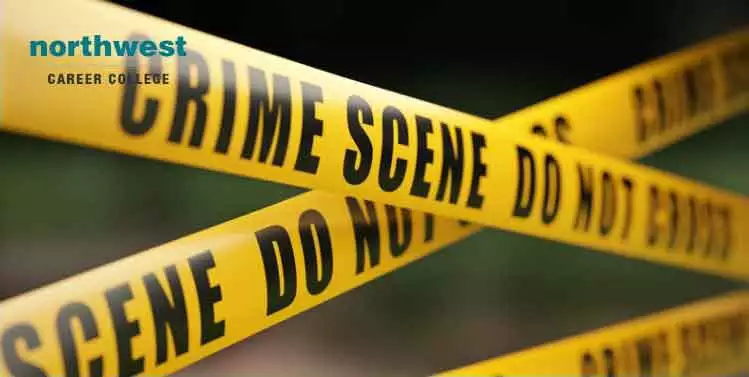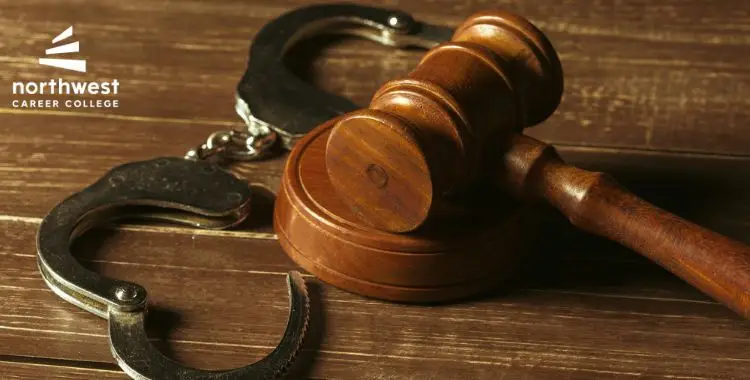The Three Pillars of the Criminal Justice System
- Criminal Justice
- February 25, 2025
- 4.8k views
- 4 min read

The US criminal justice system is a huge and complex piece of civic machinery with millions of working parts. Wrapping your head around the scale of a system that provides theoretically fair criminal justice to 327.2 million Americans.
While it is a bit of an oversimplification, the criminal justice system can be rendered down into three basic pillars, so if you are interested in a career in the justice system, such as becoming a legal assistant, and want to expand you knowledge of this vital government mechanism, here is our guide to the three pillars of the criminal justice system.
Read More: Why Criminal Justice is Important
Law Enforcement
Law enforcement is the first and most visible pillar of the US criminal justice system. Police, sheriffs, the Federal Bureau of Investigation (FBI), the (Drug Enforcement Administration) DEA, the Bureau of Alcohol, Tobacco, Firearms, and Explosives (ATF) and even the Border Patrol are there to enforce the law.
Law enforcement in the US is largely split between federal and local law enforcement. Local law enforcement might consist of local police and more state-specific organizations such as the Texas Rangers. Each of these organizations only has a mandate, or jurisdiction, to operate within its own state.
Federal law enforcement has jurisdiction that extends across state lines and is made up of a wide range of agencies with different mandates, such as the Department of Homeland Security, the FBI, the ATF, United States Customs and Border Protection, National Park Ranger Service, Veterans Affairs Police and even the law enforcement arm of the Postal Service, the United States Postal Inspection Service.
The Court system
The US court system is split along similar lines as law enforcement. Local state courts handle trials that involve matters such as family law, traffic violations, wills and estates, and most contracts and criminal cases.
The federal courts head cases that deal with interpreting the U.S. Constitution bankruptcy, disputes between states and maritime disputes. The federal court system is further split into district courts, who make the majority of judgments; appeals courts, who are there to determine if the law was applied correctly by the district and state courts, and the Supreme Court, which is the highest court in the nation and has the final say on the constitutionality of all laws.
The Correctional System
Contrary to what many people believe, the correctional system doesn’t just deal with prison and prisoners, in fact, the correctional system includes a variety of correctional facilities, such as jails, which are used to hold suspects awaiting trial; juvenile detention centers, which hold offenders under the age of 18 and prisons with various levels of security, which depends on the types of crimes offenders have committed.

The correctional system is also responsible for programs that deal with the probation and rehabilitation of prisoners, allowing them to readjust to life after a prison sentence and reenter society at a functional level.
Qualifying For Your Future
Gaining a qualification from our Criminal Justice Degree puts you in an excellent position to access a variety of employment opportunities as you look for one that suits your skills and interests. At Northwest Career College, our Criminal Justice instructors include licensed, practicing attorneys and degree instructors able to teach, not only the law but also to guide our students in the many ways a criminal justice graduate integrates into a Las Vegas legal profession.
As part of our Criminal Justice Program, you’ll visit courts, jails, meditation centers and more to experience first-hand the law in action which will make your criminal justice training applicable to the Las Vegas legal system. Northwest offers a flexible blended program with all criminal justice classes Las Vegas law classes taught on campus by an attorney and general education courses offered online. Our experienced instructors are on-campus to review and support your learning experience at all times.
Call us at (702) 403-1592 to speak to one of our enrollment team about joining our Criminal Justice Program today!



